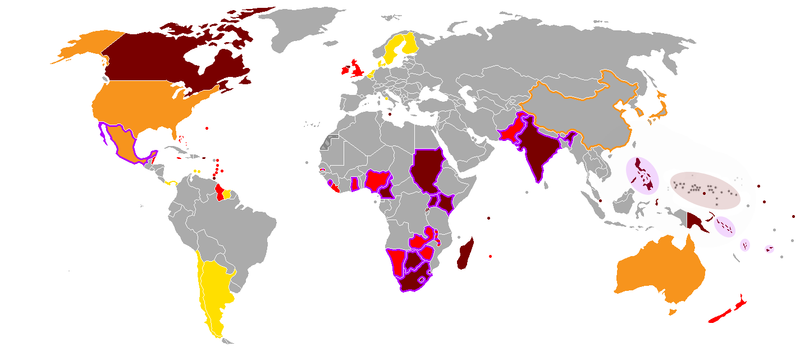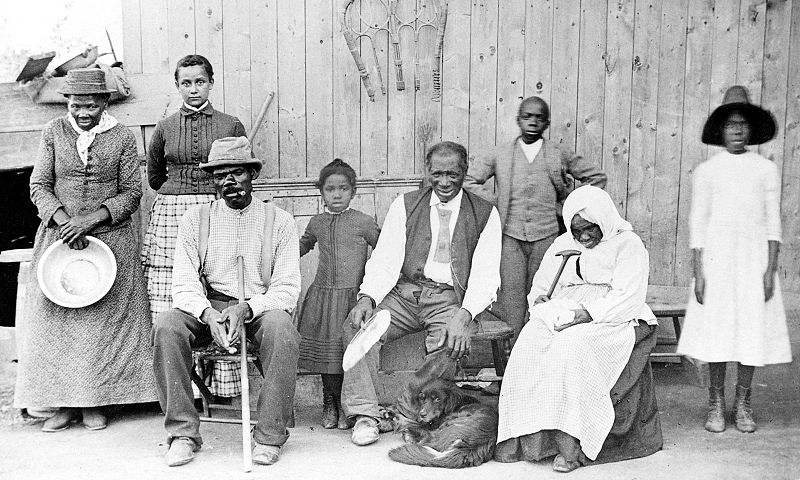
Source: English-Official and functional, Robbiemuffin, Wikimedia
A special purpose, color-coded map that shows countries where English is used with varying degrees of frequency
Although it's already one of the largest languages in the world, English is still growing. Each year, the language assimilates new words. Sometimes, older words are cut from the printed dictionary to make room for newer ones. In 2012, for example, Merriam-Webster added “bucket list,” “mash-up,” and “aha moment” (Oprah Winfrey’s signature phrase) to their already massive collection. To find out how words get added to and cut from the dictionary, click on the link to watch the following video: How a Word Gets into the Dictionary.

Source: Harriet Tubman, with rescued slaves, New York Times, Wikimedia
The first excerpt from Douglass’s “My Escape from Slavery” follows. Read this passage and mentally note any words that are unfamiliar to you.
(1) It was the custom in the State of Maryland to require the free colored people to have what were called free papers. (2) These instruments they were required to renew very often, and by charging a fee for this writing, considerable sums from time to time were collected by the State. (3) In these papers the name, age, color, height, and form of the freeman were described, together with any scars or other marks upon his person which could assist in his identification. (4) This device in some measure defeated itself—since more than one man could be found to answer the same general description. (5) Hence many slaves could escape by personating the owner of one set of papers . . . .

Source: IPSI
Words don’t exist in a vacuum; their use and meaning depends on a given context, including the era or time period when they were widely used. Frederick Douglass, who was writing in the nineteenth century, uses the word “colored” in the passage you just read. When referring to people, this word is now considered offensive. Again, words are influenced by the culture and society of the times (the context), which is why you may notice words that are no longer used today when you read his writing.
“Freeman,” a word also used by Douglass in “My Escape from Slavery,” depends on the context of pre-Civil War America for its meaning. When slavery was abolished by the 13th Amendment to the Constitution in 1865, this word became less useful since all people in the United States became “free.”
Another dated word used by Douglass in this passage, “hence,” is mostly used in legal documents now, although it sometimes crops up in other kinds of writing, too. As you might guess, the less a word is used, the more likely it is to become archaic.
This may cause you to ask, “How do we keep up?” and “How do we learn the meaning of the words that we need to know to be successful?” Keep these questions in mind as you go to the next section in this lesson.